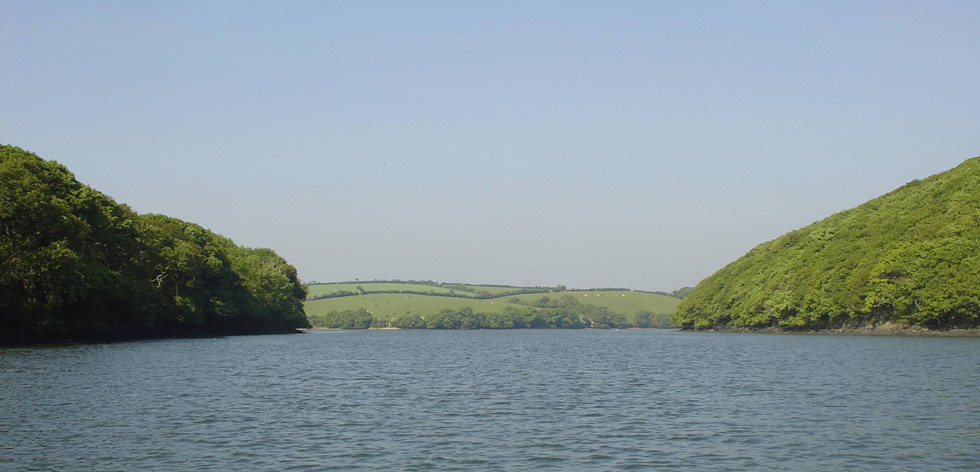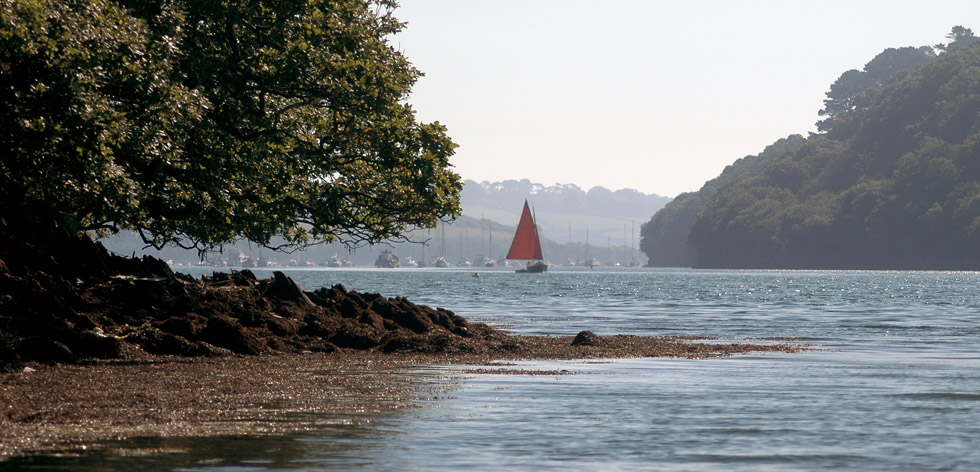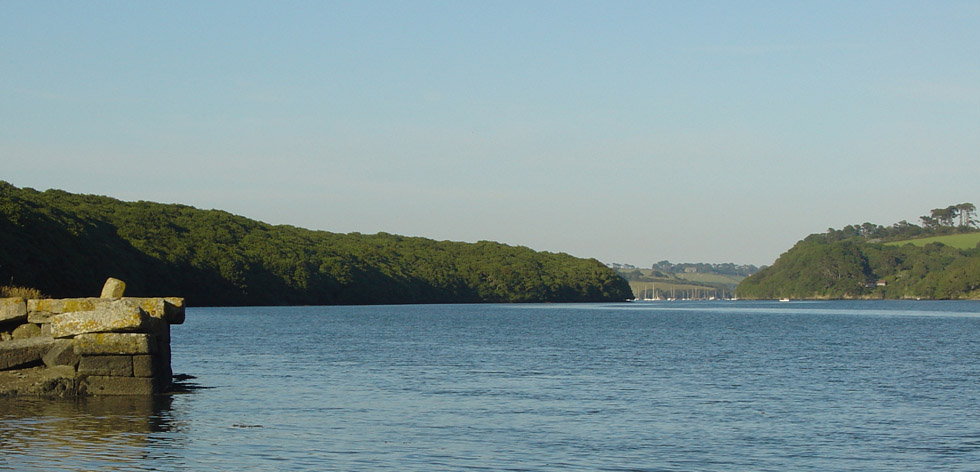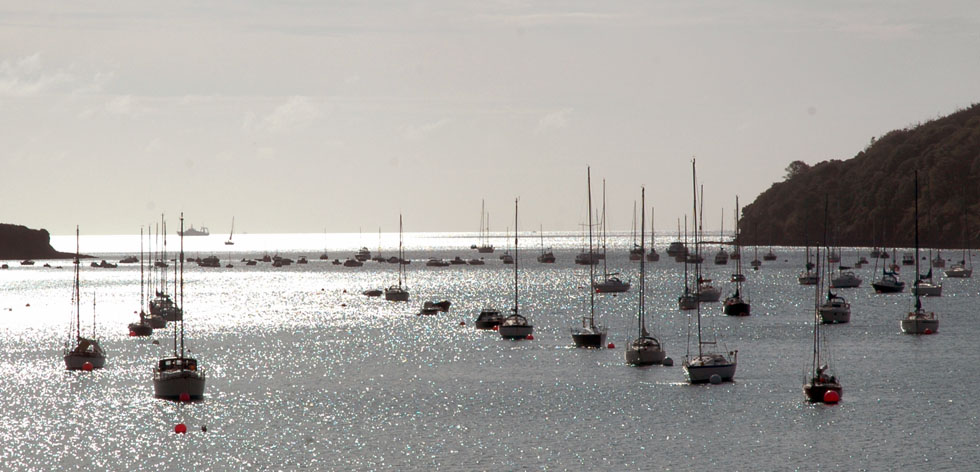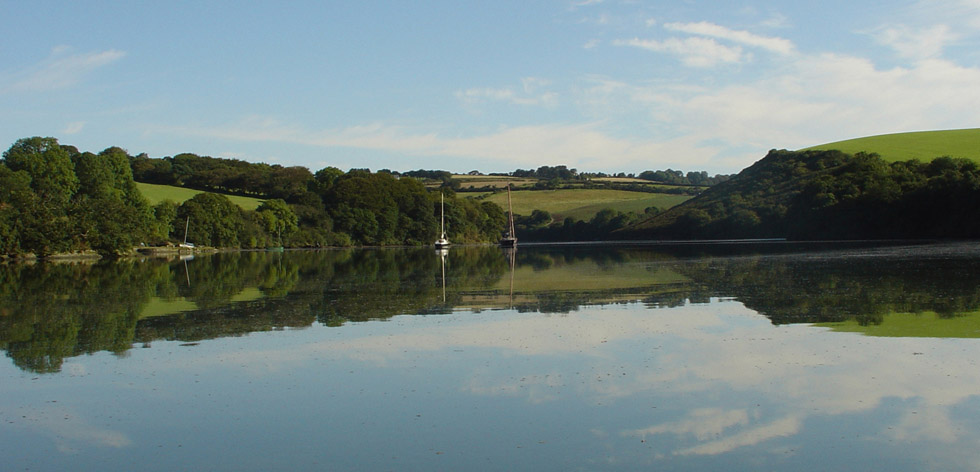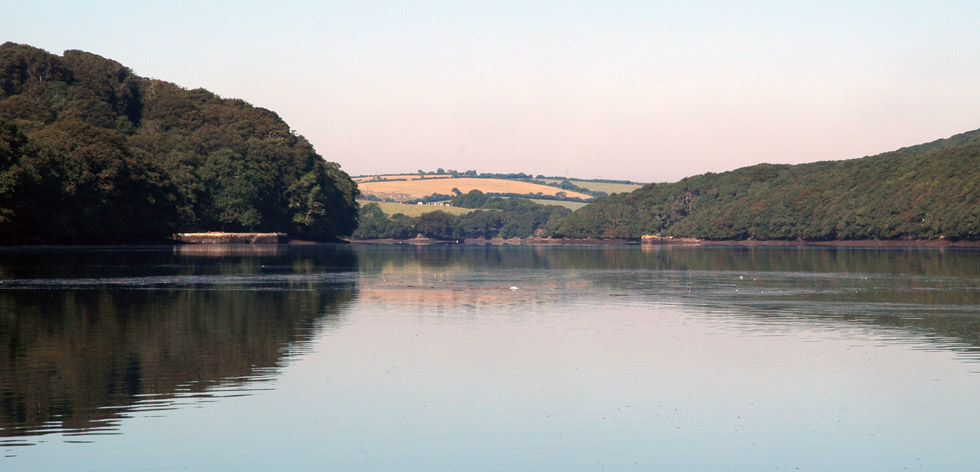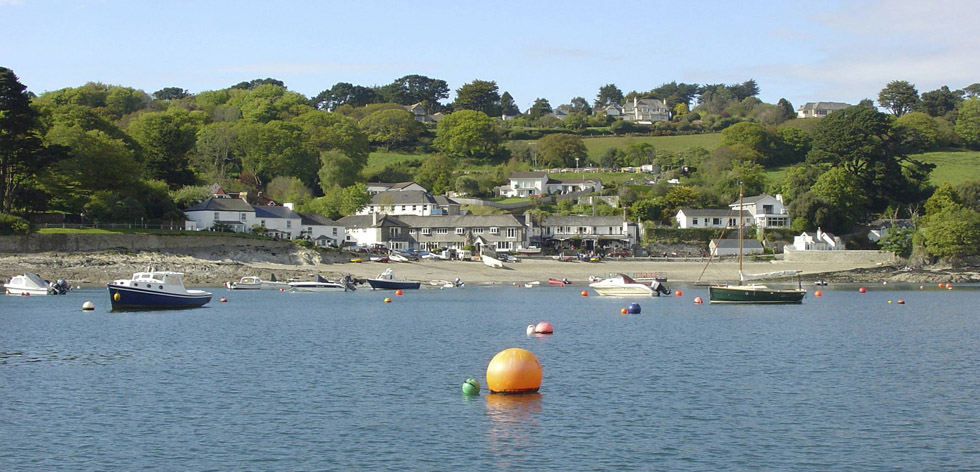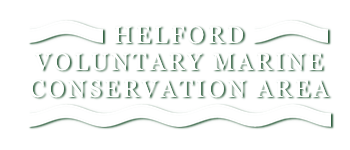Seashore Safari, Helford Passage with Ruth Williams
Monday, 18th April 2011
If shellfish, crabs and other marine creatures have an early warning system, it must have clicked on ‘Red Alert’ today as the Seashore Safari got underway. But to no avail. A horde of searchers, 30 adults and 45 children, with ages ranging from 2 to 80, was advancing over the rocks, armed with nets and buckets. There was little chance of any creature remaining undetected as sharp eyes and quick hands and nets probed the rock pools and watery gullies; and soon treasured finds were being placed in the buckets and carried to Ruth for identification.
The weather conditions were ideal – a dry, warm, spring day and a slight breeze. With one of the lowest tides of the year the water was receding fast, leaving the ferry immobile on the sand beside its jetty and allowing us to walk around grounded boats that an hour or so earlier had been riding to buoys. Limpets, barnacles and mussels on the rocks of the upper shore had closed their shells for the drying out period and beadlet anemones in the small pools had retracted to jelly blobs. There were topshells in a variety of colours, plus periwinkles, but the main quarry in the larger pools was creatures that moved – small fish including butterfish and different types and sizes of crabs: hermit, shore and velvet swimming crabs, among which was a soft-bodied one that had only recently moulted its outgrown shell. Easier to capture were small common starfish. An unusual find was a brown sea hare about 9cm long.
On the lower shore, now uncovered by the receding tide, were abundant sand-encrusted tubes and filigree tentacle umbrellas of the sand mason worm and smaller numbers of peacock worm tubes. A few marooned scallops were trying to jerk themselves back into the water by slowly opening their shells and then snapping them shut. Other shells, mostly empty, included native and Pacific oyster, razor shells, chiton, whelk, cockle and slipper limpets. Gradually the party thinned as parents and children left for lunch, but not before they had thanked Ruth warmly for a very enjoyable and rewarding outing – and one mother took the opportunity to confirm that she had collected the right seaweed to add to her salad!
The HMCG wishes to express its appreciation to Ruth for leading an extremely successful trip.
